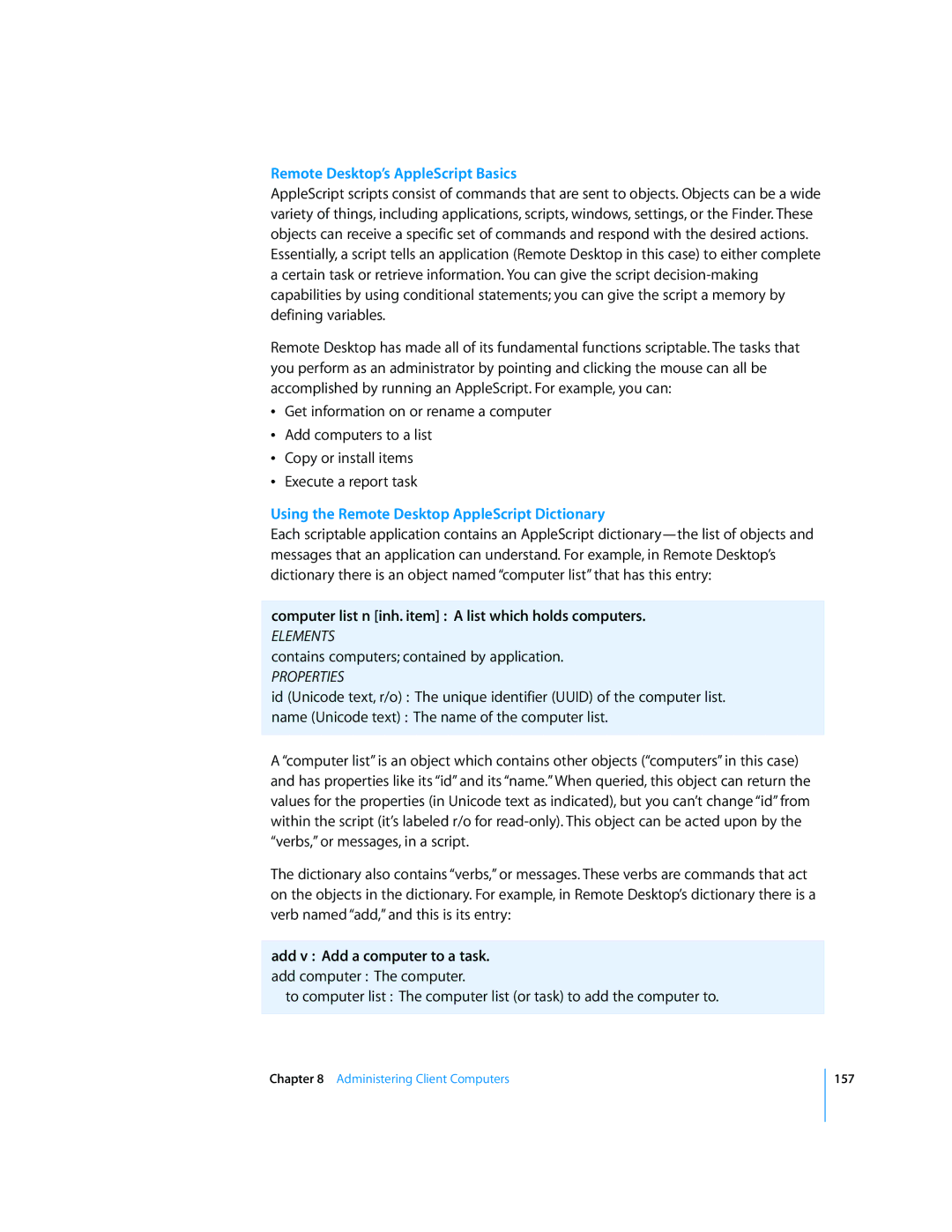
Remote Desktop’s AppleScript Basics
AppleScript scripts consist of commands that are sent to objects. Objects can be a wide variety of things, including applications, scripts, windows, settings, or the Finder. These objects can receive a specific set of commands and respond with the desired actions. Essentially, a script tells an application (Remote Desktop in this case) to either complete a certain task or retrieve information. You can give the script
Remote Desktop has made all of its fundamental functions scriptable. The tasks that you perform as an administrator by pointing and clicking the mouse can all be accomplished by running an AppleScript. For example, you can:
ÂGet information on or rename a computer
ÂAdd computers to a list
ÂCopy or install items
ÂExecute a report task
Using the Remote Desktop AppleScript Dictionary
Each scriptable application contains an AppleScript
computer list n [inh. item] : A list which holds computers.
ELEMENTS
contains computers; contained by application.
PROPERTIES
id (Unicode text, r/o) : The unique identifier (UUID) of the computer list.
name (Unicode text) : The name of the computer list.
A “computer list” is an object which contains other objects (“computers” in this case) and has properties like its “id” and its “name.” When queried, this object can return the values for the properties (in Unicode text as indicated), but you can’t change “id” from within the script (it’s labeled r/o for
The dictionary also contains “verbs,” or messages. These verbs are commands that act on the objects in the dictionary. For example, in Remote Desktop’s dictionary there is a verb named “add,” and this is its entry:
add v : Add a computer to a task.
add computer : The computer.
to computer list : The computer list (or task) to add the computer to.
Chapter 8 Administering Client Computers
157
